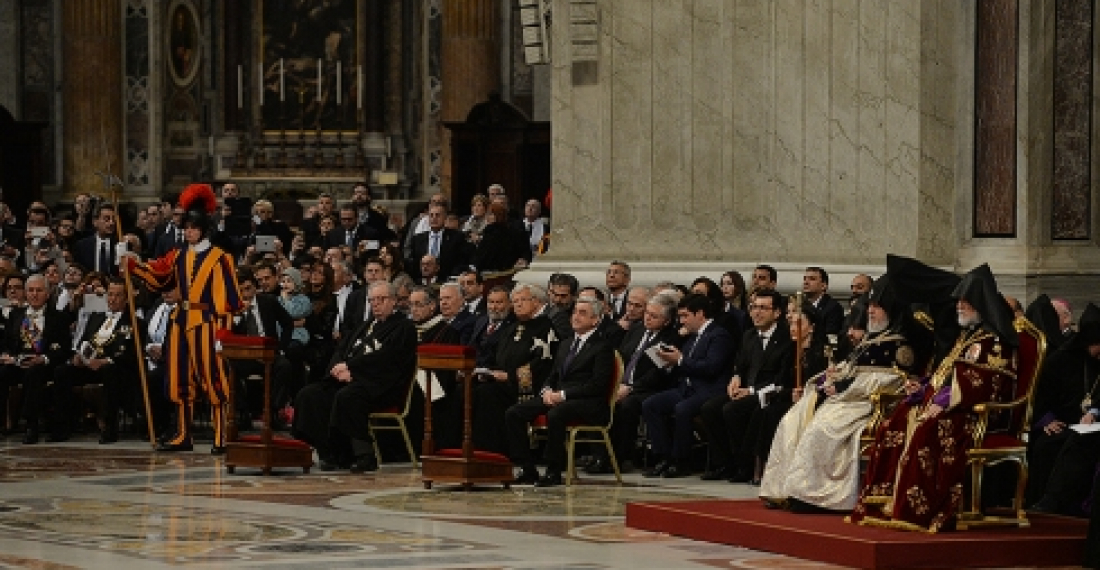The President of Armenia, Serzh Sargsyan, accompanied by religious leaders and state officials on Sunday attended holy mass celebrated by Pope Francis at the Vatican.
The following is a report carried by Vatican Radio, under the title "Pope Francis celebrated mass for the centenary of the Armenian martrydom":
Pope Francis processed into the Basilica of Saint Peter flanked by the Catholicoi Karekin II and Aram I of the Armenian Apostolic Church, with the Patriarch Catholicos Nerses Bedros XIX a few paces ahead. Patriarch Nerses concelebrated Mass with the Holy Father.
Greeting the Armenian faithful who had come to Rome for the event, Pope Francis spoke out boldly against cruelty, recalling the occasions when he had previously spoken of "a third world war" being fought piecemeal, a war "in which we daily witness savage crimes, brutal massacres and senseless destruction." Today, he said, "we are experiencing a sort of genocide created by a general and collective indifference, by the complicit silence of Cain..."
Pope Francis noted three "massive and unprecedented tragedies" of the twentieth century, the first of which was the "Great Crime," the systematic massacre of Armenian Christians who were slaughtered because of their faith. The atrocities of the Nazis and the Communists, along with other mass killings, makes it seem as if "humanity is incapable of putting a halt to the shedding of innocent blood... We have not yet learned," he said, "that ‘war is madness,' a ‘senseless slaughter.'"
It is necessary, and even a duty, he said, to recall these events, notably the massacre of the Armenians, "with hearts filled with pain, but at the same time with great hope in the risen Christ."
He said it was his duty to honour the memories of those who were killed.
The report of Vatican Radio uses the term massacres but makes no reference to the term genocide. However the BBC in its report of the event stated that the Pope said that humanity had lived through "three massive and unprecedented tragedies" in the last century."The first, which is widely considered 'the first genocide of the 20th Century', struck your own Armenian people," he said, in a form of words used by a declaration by Pope John Paul II in 2001.
Pope Francis also referred to the crimes "perpetrated by Nazism and Stalinism" and said other genocides had followed in Cambodia, Rwanda, Burundi and Bosnia.
"Concealing or denying evil is like allowing a wound to keep bleeding without bandaging it," the Pope added.
The BBC report also quoted Armenian President Serzh Sargsyan as stating that he welcomed the Pope's comments, saying they sent a powerful message to the international community.
source: commonspace.eu with Vatican Radio and BBC
photo: President Serzh Sargsyan led Armenian state and church dignatries at the mass celebrated by Pope Francis at the Vatican on 12 April 2015.







